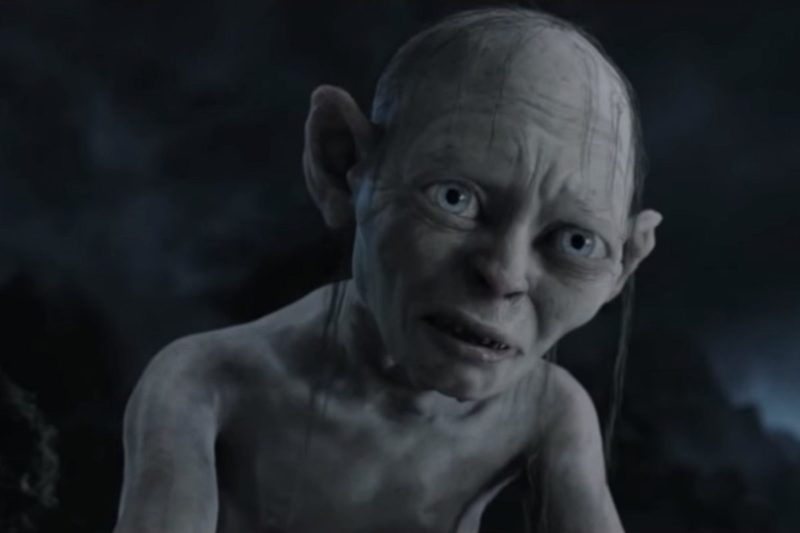Campaign Week in Review: Cruz Likens His Supreme Court Pick to ‘Lord of the Rings’ Character
This week on the campaign trail, Donald Trump and Ted Cruz spoke about whom they would nominate for the vacant Supreme Court seat, and Trump saw his favorability plummet among women.

This week on the campaign trail, Donald Trump and Ted Cruz spoke about whom they would nominate for the vacant Supreme Court seat, and Trump saw his favorability plummet among women.
Cruz, Trump Discuss Their Supreme Court Nominations
Republican presidential candidates Sen. Ted Cruz (R-TX) and Donald Trump were hard at work dreaming up possibilities for a Supreme Court nominee should the Senate obstruct Obama’s pick for the vacancy.
Appearing at a rally over the weekend for Sen. Mike Lee’s (R-UT) bid for re-election, Cruz commented that Lee “would look good” on the Supreme Court. Cruz compared Lee to Gollum, a character from Lord of the Rings, claiming that “For Mike, the Constitution is ‘my precious,'” according to the Salt Lake Tribune.
Lee’s work opposing abortion during his time in Congress earned him a 100 percent rating from the anti-choice National Right to Life Committee. The Republican senator has supported several measures attempting to limit access to or outright ban abortion, including a 2013 bill to investigate all abortion clinics and extend “personhood” rights beginning at the moment of fertilization, which could outlaw many forms of birth control in addition to abortion.
Lee’s 2010 campaign website included a section noting his opposition to legal abortion and Roe v. Wade:
The Constitution says nothing that can plausibly be read to suggest—as the Supreme Court concluded in Roe v. Wade—that States are essentially powerless to protect unborn human life. This power to protect the most vulnerable members of society needs to be returned to the States.
Donald Trump also signaled he was mulling over potential picks for the Court’s vacancy, promising during a Monday press conference in Washington, D.C., to release a list of seven to ten potential picks. If elected, Trump vowed to choose nominees exclusively from the list, which he said will be created by the “Heritage Foundation and others.”
But as ThinkProgress reported, the Heritage Foundation “is an odd place for a presidential candidate to seek advice on any topic” given its history of discriminatory politics:
Heritage is a think tank known for its stridently conservative views and its unorthodox approach to mathematics. They oppose marriage equality, defend discrimination against LGBT Americans, and they have a surprisingly long history of reversing their own stances on health policy when doing so is useful to opponents of Obamacare. Their former chief “economist” is an ex-newspaper columnist and anti-tax activist with no doctorate in economics.
In 2013, Heritage released a widely criticized report claiming that immigration reform would cost an eye-popping $6.3 trillion. One of the co-authors of that report resigned four days later after news broke that “his graduate dissertation on immigration was premised on the idea that Latinos were less intelligent than whites.”
The Heritage Foundation is vehemently anti-choice, a position that could inform its picks for the Court. The organization’s “Solutions 2016” policy recommendations include calls to expand bans on using federal funding for abortion, redirect funding for reproductive health away from Planned Parenthood to community health centers, and codify protections for “medical personnel who decline to provide, pay for, provide coverage of, or refer for abortions.” Its website also details the organization’s opposition to Roe v. Wade, dismissing the decision as “judicial activism.”
Poll: 74 Percent of Women Registered to Vote Hold Unfavorable Views of Trump
A CNN/ORC International poll released Thursday found that Donald Trump is viewed unfavorably by 74 percent of registered women voters and 81 percent of people of color.
The poll, which asked registered voters whether they “have a favorable or unfavorable opinion” of presidential candidates, shows potentially major hurdles for the Republican front-runner moving into the general election. Comparably, 50 percent of women and 36 percent of “non-white” people polled said they had an “unfavorable” view of Hillary Clinton.
Polling from the Washington Post similarly found that Trump’s favorability among women has been steadily declining—jeopardizing the Republican Party’s already tumultuous relationship with women. “Trump’s favorability numbers have decreased 10 points among women nationwide since November, to 23 percent, while his unfavorable number among women has jumped to 75 percent from 64 percent, according to a Washington Post-ABC News poll taken this month,” reported the Post.
What Else We’re Reading
Franklin Foer explained for Slate that “there’s one ideology that [Trump] does hold with sincerity and practices with unwavering fervor: misogyny.”
The Washington Post’s Karen Attiah wrote about the sexism she experienced from Donald Trump after asking him a policy question during his sit-down with the paper’s editorial board.
ThinkProgress’ Aaron Rupar explains how the Republican presidential race has turned into a “sexist competition over whose wife is hotter.”
Voters in Arizona had to wait in line as long as five hours to cast a ballot in their state’s Tuesday primary thanks to a Supreme Court decision that “gutted” the Voting Rights Act (VRA) and “an ill-conceived decision” to cut polling locations in order to save money. As the Nation reported, “Phoenix’s Maricopa County, the largest in the state, reduced the number of polling places by 70 percent from 2012 to 2016, from 200 to just 60—one polling place per every 21,000 voters”—a change that “would very likely have been blocked” had the VRA’s protections remained intact.
Bernie Sanders applauded Phoenix Mayor Greg Stanton’s request for a Department of Justice investigation into voting delays in Maricopa County.
Dark money groups in Wisconsin are outspending candidates on ads for the Wisconsin Supreme Court race. When voters head to the polls for the April 5 judicial elections, “they won’t know who funded most of the ad spending around this race,” said the Sunlight Foundation’s Libby Watson.
